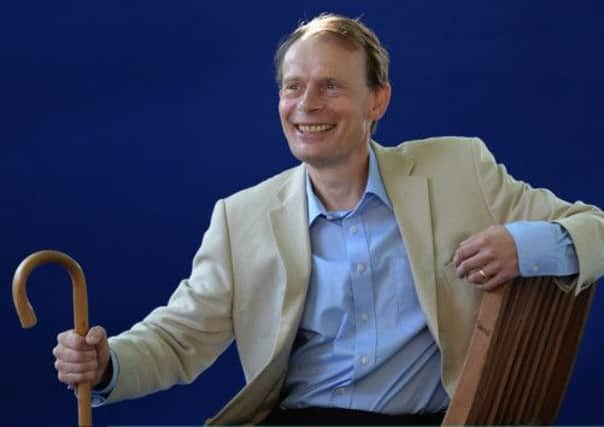Anti-English feeling entrenched in Scotland - Marr


The BBC presenter, who was born in Glasgow, also said he was “very worried” about the kind of language being used in the independence debate.
He was speaking at the Edinburgh International Book Festival during his first public appearance since suffering a stroke.
Advertisement
Hide AdAdvertisement
Hide AdReferring to the Glasgow author and artist Alasdair Gray’s controversial visit to the book festival earlier this week, Marr – who was launching an updated version of his 1992 book The Battle for Scotland – also said he was dismayed at the use of terms like “settler and colonist”.
He was backed by Scottish Liberal Democrat leader Willie Rennie, who accused the SNP leadership of not doing enough to tackle the problem.
The SNP insisted there was no place for intolerance in Scotland.
Asked about Ukip leader Nigel Farage’s complaints about suffering anti-English abuse, Marr said: “There is a very strong anti-English feeling [in Scotland], everybody knows it, there always has been.
“If you go back to the origins of the SNP, the origins of home rule, anglophobia was as well entrenched then as it is now. I don’t think it is particularly serious most of the time, but it can become serious – it can become toxic.”
Marr said both sides of the argument were “wrong and dangerous” to use aggressive language and terms like “traitor”.
Marr said there had been “curiously little” discussion about what kind of Scotland was going to emerge after the independence vote.
He added: “I’ve been very worried by the tone of some of the independence debate, from people on both sides. It is getting very, very aggressive. Whatever your view about the Union, there is nobody taking part in the debate that is a traitor.
Advertisement
Hide AdAdvertisement
Hide Ad“There is nobody who deserves to be denounced and cast out and told they are not really Scottish on the basis if their views. It is wrong and dangerous because whatever happens next year you are all going to have to live together afterwards.”
Marr added: “I was very struck when Nigel Farage came up to Edinburgh and got such a rough time, particularly since it was hardcore Nats who were accusing him of outrageous nationalistic sentiment. As I understand it, whatever you may think of him, he is trying to get independence for Britain from Brussels. It is not necessarily totally different from trying to get independence for Scotland from London. Your neighbour’s nationalism is always toxic and xenophobic, while your nationalism is always good.”
Mr Rennie said: “It is true there is an undercurrent of anti-English sentiment in Scotland. It’s a minority but it exists. The leadership of the SNP do not foster that but occasionally let themselves down.”
A spokesman for the SNP said: “We are happy to see that Andrew Marr’s health is recovering, but we are disappointed by the picture of Scotland he has painted in his reported comments.
“It is simply wrong to suggest that aspirations for Scotland to make our own decisions are based on anything other than a desire to build a fairer, more prosperous Scotland.”
A spokesman for the Yes Scotland campaign added: “Scotland has always been a welcoming and inclusive country with a large, well-established migrant community, as well as many thousands of English people who live and work here.
“One of the advantages of independence is that it will help strengthen the social union between Scotland and the other countries of these isles.”
A Better Together spokesperson said: “It is easy to understand why people may think that there is anti-English feeling in Scotland when our government spends every waking hour looking for new ways to divide us from our friends, families and workmates south of the Border.
Advertisement
Hide AdAdvertisement
Hide Ad“It is important that those who are leading the debate set the tone for the debate. This means that when senior nationalists use phrases like ‘cancer’ to describe London, they should be condemned by their colleagues.”